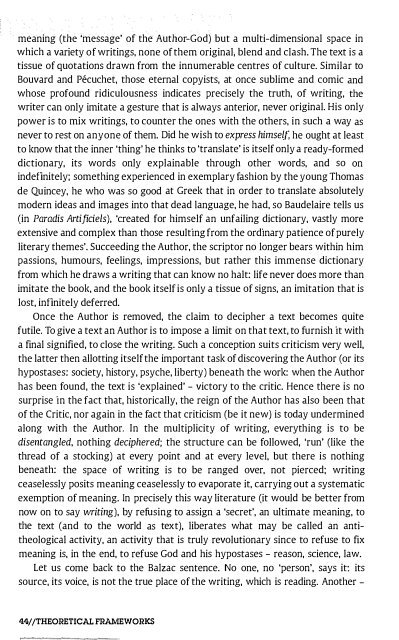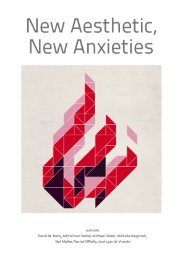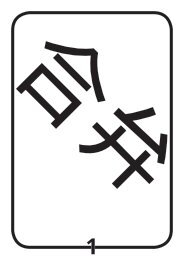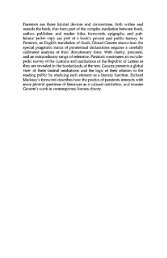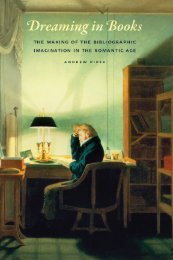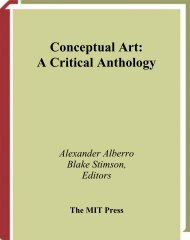You also want an ePaper? Increase the reach of your titles
YUMPU automatically turns print PDFs into web optimized ePapers that Google loves.
meaning (the 'message' of the Author-God) but a multi-dimensional space in<br />
which a variety of writings, none of them original, blend and clash. The text is a<br />
tissue of quotations drawn from the innumerable centres of culture. Similar to<br />
Bouvard and Pecuchet, those eternal copyists, at once sublime and comic and<br />
whose profound ridiculousness indicates precisely the truth, of writing, the<br />
writer can only imitate a gesture that is always anterior, never original. His only<br />
power is to mix writings, to counter the ones with the others, in such a way as<br />
never to rest on anyone of them. Did he wish to express himself, he ought at least<br />
to know that the inner 'thing' he thinks to 'translate' is itself only a ready-formed<br />
dictionary, its words only explainable through other words, and so on<br />
indefinitely; something experienced in exemplary fashion by the young Thomas<br />
de Quincey, he who was so good at Greek that in order to translate absolutely<br />
modern ideas and images into that dead language, he had, so Baudelaire tells us<br />
(in Paradis Artijiciels), 'created for himself an unfailing dictionary, vastly more<br />
extensive and complex than those resulting from the ordinary patience of purely<br />
literary themes'. Succeeding the Author, the scriptor no longer bears within him<br />
passions, humours, feelings, impressions, but rather this immense dictionary<br />
from which he draws a writing that can know no halt: life never does more than<br />
imitate the book, and the book itself is only a tissue of signs, an imitation that is<br />
lost, infinitely deferred.<br />
Once the Author is removed, the claim to decipher a text becomes quite<br />
futile. To give a text an Author is to impose a limit on that text, to furnish it with<br />
a final signified, to close the writing. Such a conception suits criticism very well.<br />
the latter then allotting itself the important task of discovering the Author (or its<br />
hypostases: society, history, psyche, liberty) beneath the work: when the Author<br />
has been found, the text is 'explained' - victory to the critic. Hence there is no<br />
surprise in the fact that, historically, the reign of the Author has also been that<br />
of the Critic, nor again in the fact that criticism (be it new) is today undermined<br />
along With the Author. In the multiplicity of writing, everything is to be<br />
disentangled, nothing deciphered; the structure can be followed, 'run' (like the<br />
thread of a stocking) at every point and at every level, but there is nothing<br />
beneath: the space of writing is to be ranged over, not pierced; writing<br />
ceaselessly posits meaning ceaselessly to evaporate it, carrying out a systematic<br />
exemption of meaning. In precisely this way literature (it would be better from<br />
now on to say writing), by refusing to assign a 'secret', an ultimate meaning, to<br />
the text (and to the world as text), liberates what may be called an antitheological<br />
activity, an activity that is truly revolutionary since to refuse to fix<br />
meaning is, in the end, to refuse God and his hypostases - reason, science, law.<br />
Let us come back to the Balzac sentence. No one, no 'person', says it: its<br />
source, its voice, is not the true place of the writing, which is reading. Another -<br />
44/ /THEORETICAL FRAMEWORKS


